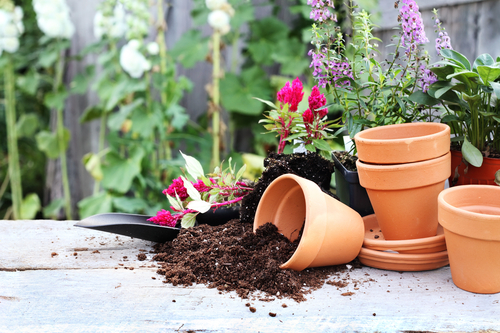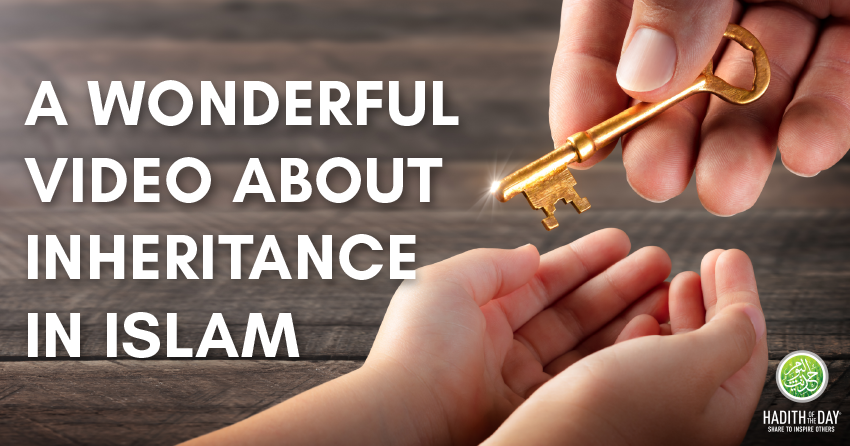Emotional rewards of Jannah

Five “Emotional” Rewards in Jannah
Since my daughter was very young, her and I have talked openly about Jannah. She has high hopes for a field of her own peacocks and for a horse with wings to fly her around (but she insists I sit behind her so she doesn’t fall off). She has so many questions about when she’ll go, who she’ll see there, and how old she’ll be. And I answer her, usually with patience, because I want her to genuinely feel like the hereafter is an inevitable reality.
As an adult, though, I don’t always think deeply about the physical joys that Jannah will bring. While my imagination isn’t as wild or adventurous as my child’s, I do find myself thinking about the emotional rewards of Jannah.
Allah (swt) is closer to us than our own beating hearts. He knows the frequent turmoil and pain that we go through as individuals, families, and communities. So wouldn’t it follow that the All-Knowing Creator would make us a promise to remedy all that pain and hardship? Well, He (swt) does. Many, many times.
The following are five emotional rewards that I have come across in the Quran that have profoundly touched my heart. I pray that I am able to experience them in the hereafter.
1. No trolls
Have you ever read a news article and scrolled down to the comments section (even though you knew you shouldn’t)? If you have, you know what a troll is, and just how damaging and hurtful people’s words can be. And that’s only online – we still hear hurtful, judgmental, and inflammatory comments from people around us, even those closest to us.
This abuse has always been a lived reality for believers throughout history:
Allah (swt) says, “…And you will surely hear from those who were given the Scripture before you and from those who associate others with Allah much abuse. But if you are patient and fear Allah – indeed, that is of the matters [worthy] of determination” (3:186)
As Muslims (especially visibly-practicing Muslim women) we often walk through life knowing that false and cruel comments and insults are being directed at us. And it can be exhausting to carry that burden as we try to be active, productive human beings.
Allah (swt) promises us that there will be none of that in Jannah – only “salaman salama.” No more paranoia about someone saying something behind our backs. No more potential of being hurt by those who seek to do us harm. No more worry that people will capitalize on our insecurities and manipulate us:
“They will not hear therein ill speech or commission of sin – Only a saying: ‘Peace, peace’” (56:25-26).
As soon as you enter the gates of paradise, angels greet you, saying the most beautiful words: “Peace be upon you for what you patiently endured. And excellent is the final home” (13:24).
A generous reward from The Most Generous to help us endure the pain inflicted on us by others in this world.
2. No grudges between people
Allah (swt) says He will remove whatever resentment and ill feelings we have from our hearts once we enter paradise. Whatever grudges we’ve kept, whatever pain we’ve held onto, whatever scars our hearts have had to bear will be gone.
“Indeed, the righteous will be within gardens and springs. [Having been told], ‘Enter it in peace, safe [and secure].’ And We will remove whatever is in their chests of resentment, [so they will be] brothers, on thrones facing each other. No fatigue will touch them therein, nor from it will they [ever] be removed” (15:45-48).
Just by the mere fact that this is mentioned in the Quran means that Allah (swt) knows that we hold onto resentments. We try not to. We smile in the faces of the people who have hurt us again and again, and we tell ourselves that we’ve moved on. But something lingers there in the forgotten cavities of the heart, in the distant corners of memory, in wistful moments of looking through old photo albums.
Pain lingers. It’s disguised as other things sometimes, buried under the rubble of time and niceties – but it’s there. Each one of us has experienced it.
Allah (swt) knows that in the imperfections of our human mind and body, there is space for ill feelings between people – even believers. So He tells us that entering Jannah will obliterate these feelings.
That profound ability to change hearts lies with Allah alone. There’s no place for resentment and grudges between the inhabitants of paradise. That is true freedom gifted to the believers by a Lord who knows us better than we could ever endeavour to know ourselves.
3. No sadness over the past, nor fear over the future:
Sadness over the past and fear of what the future may bring are two natural emotions that do not necessarily contradict faith. They are built into us, and should be kept in check by knowing that Allah (swt) does not burden a soul more than it can bear, and trusting that Allah (swt) has a precise and perfect plan for us.
But the emotions still exist. We are continuously journeying towards stations of happiness, but even when we arrive at these stations, there are always memories of sadness or fears of future troubles quietly burning within us. Our lives in this world will never be free from fear or sadness.
Allah (swt) describes Jannah as being a place where believers will not fear nor grieve. From the start of the human existence, these “emotional” rewards of paradise have been present. When Adam and Hawa were expelled from paradise, Allah (swt) said: “Go down from it, all of you. And when guidance comes to you from Me, whoever follows My guidance – there will be no fear concerning them, nor will they grieve” (2:38).
Allah (swt) mentions the reward for the believers of “no grief and no fear” 53 times in the Quran…those who believe in the Quran, who submit themselves wholly to Allah, who are firm on the path, who follow the signs of the messengers He sends, who establish prayer and deeds of righteousness, who spend publicly and privately from their wealth… “on them shall be no fear, nor shall they grieve.”
That is the Majesty of Allah (swt) in that all His rewards, as beyond our imaginations as they are, coincide with our every possible need and desire. Many of us desire, more than anything else, to not have to grieve anymore, to not have to fear anymore.
And when the believers enter paradise (may Allah make us from them), they will say:
“Praise to Allah, who has removed from us [all] sorrow. Indeed, our Lord is Forgiving and Appreciative – He who has settled us in the home of duration out of His bounty. There touches us not in it any fatigue, and there touches us not in it weariness [of mind]” (35:34-35).
4. The company of those we love
A man asked Prophet Muhammad (saw) about the Hour (i.e. Day of Judgment) saying, “When will the Hour be?” The Prophet (saw) said, “What have you prepared for it?” The man said, “Nothing, except that I love Allah and His Apostle.” The Prophet (saw) said, “You will be with those whom you love.”
This simple statement: “You will be with those whom you love” caused great happiness among the companions. They were overjoyed to know that even though their deeds would never be as great and plentiful and sincere as the Prophet’s deeds, they would still be in his company in paradise. All due to their love for him. (Their love, of course, necessitated following his teachings.)
May Allah (swt) grant us the company of our messenger.
The love people have for one another in this world is not cut off once they die. It’s not some string of yarn that snaps when someone’s soul is taken from his or her body. It rests for a time – perhaps it is even forgotten. But not by Allah (swt). That love between believers continues to exist invisibly, uninterrupted, until Allah (swt) decrees that it should resurrected once again.
Our hearts naturally attach themselves to the people that Allah (swt) has placed in our lives. And so He promises the believers that they will reunite with their loves once again:
“Gardens of perpetual residence; they will enter them with whoever were righteous among their fathers, their spouses and their descendants. And the angels will enter upon them from every gate, [saying], ‘Peace be upon you for what you patiently endured. And excellent is the final home’” (13:23-24).
Allah (swt) soothes the pain of separation by telling us, this world is not all you get. May He reunite us with our loved ones in a place with no more separation.
5. Ridwan (approval) from Allah
We are in a constant struggle with our own selves to do what’s right and avoid what’s wrong. There are so many times we fail at upholding our values or following what we know to be true. We fall, again and again, scraping our hearts and injuring the hold we have on our faith. We get up and dust ourselves off, though, asking for forgiveness and hoping that He will grant it.
And even if we are the strongest possible believers and spend our entire lives and wealth and resources pursuing as many good deeds as we can manage, we often question our own intentions. Are we really doing this to gain closeness to God? Or are we doing this to feed our own egos/boast to others about our piety?
The truth is, we inhabit a world of simultaneous hope and fear – we hope that He accepts our deeds, but we also fear that we just haven’t done enough.
This internal struggle will end once we reach our final destination in Jannah. We will know then, beyond the shadow of a doubt, that Allah (swt) is pleased with us, is proud of us, and is giving us an eternity of bliss.
“Allah has promised the believing men and believing women gardens beneath which rivers flow, wherein they abide eternally, and pleasant dwellings in gardens of perpetual residence; but approval from Allah is greater. It is that which is the great attainment” (9:72).
This is the approval of the One who created us and who has been with us always – through every stage of life, through our moments of joy and heartache, through the moments of sturdiest faith and greatest struggle. This approval from Him is better than any other reward we can imagine in paradise. Our hearts will finally, finally be at ease knowing that we have completed our task as believers.
All of this and more will be granted to the believers “as reward for what they used to do” (56:24).
I ask Allah (swt) using the same beautiful dua that Aasiya (ra) made to Him: O my Lord, build for us near You a home in paradise.
________
Asmaa Hussein is a writer and mother. Her best-selling book is a gripping memoir of widowhood entitled “A Temporary Gift: Reflections on Love, Loss, and Healing.” She owns Ruqaya’s Bookshelf, a small publishing company based in Canada. To find out more about purchasing her books, please visit www.ruqayasbookshelf.com
Since You’re Here… we have a small favour to ask.
In these extraordinary times, millions rely on HOTD for daily uplifting & inspiring content. Established since 2009 and with your kind support we’ve seen readers elevate their Imaan & strive for better on a daily basis. We’re committed to keeping our content freely available and open for all readers. Every contribution, however big or small, makes a difference and help us spread knowledge to millions daily
HOTD is something special, it’s a place where people can come to be inspired, to renew their faith, to learn and share knowledge, to fall in love with our faith and also our Prophet (peace and blessings be upon him and his family).
All content on HOTD is free. We believe what we do in this life builds for the next one and we work tirelessly with the aim to please Allah and inspire the global Muslim community as
well as providing information and inspiration for anyone interested in Islam. We simply cannot do this without your support and your support helps us continue our services.
If there were ever a time to join us, it is now. You can support HOTD and help sustain our future. Support Hadith of the Day and make a one-off donation or give regularly from as little as £10 a month Jazak’Allah Khayr – whatever you donate will come back to benefit you Insha’Allah as whatever is spent in the way of Allah is an investment in the future and the next life. Thank you.






